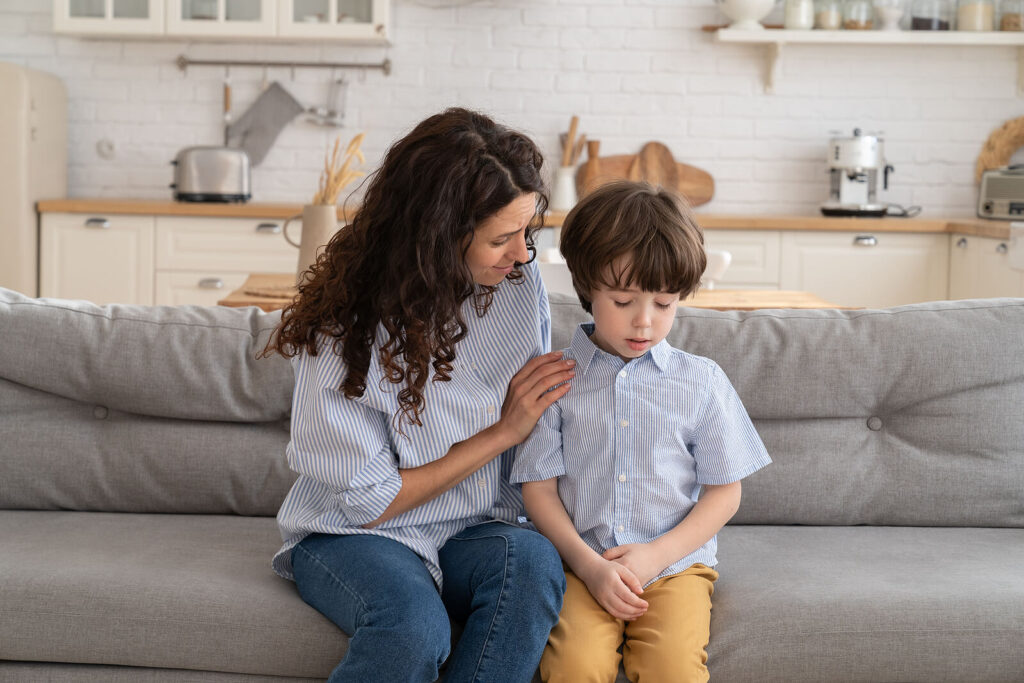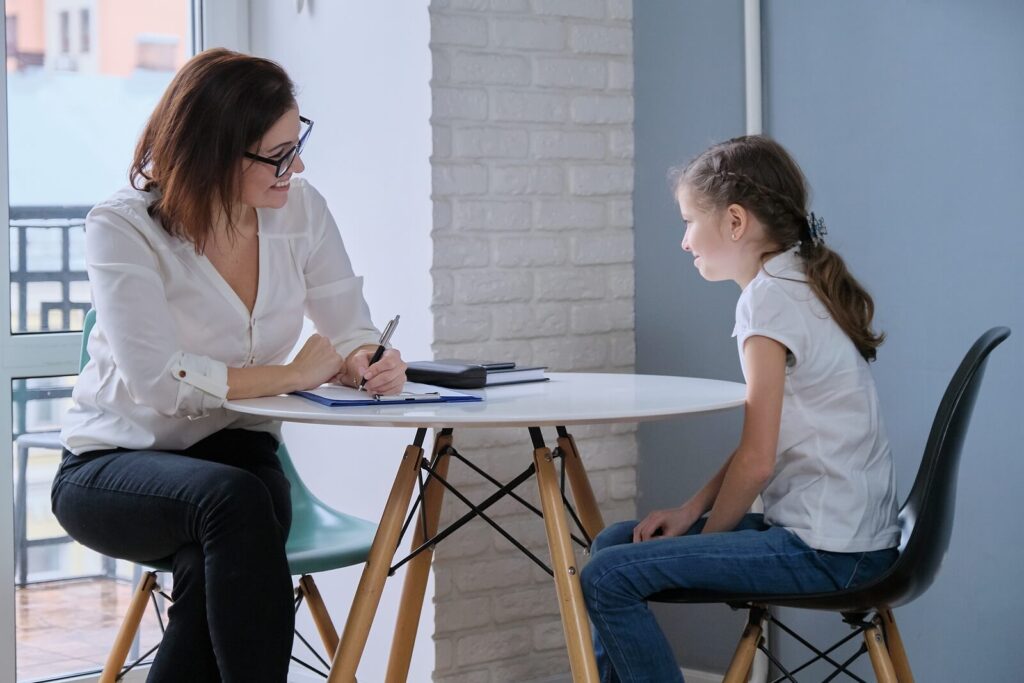Anxiety can feel overwhelming—not just for children and teens experiencing it, but also for the parents navigating how to support them. If your child or teen seems constantly worried or struggles to confront everyday challenges, you’re not alone. Anxiety is one of the most common mental health challenges among young people. The good news? With the right strategies, tools, and support, you can help your child or teen overcome their fears and build resilience.
At West Houston Counseling Center, we work closely with families to break down anxiety and give both kids and parents actionable ways to move past it. Here’s what you need to know about anxiety and how to help your child thrive.

Understanding Anxiety in Children and Teens
Anxiety is not just about feeling worried or stressed from time to time. It becomes a problem when it starts interfering with your child’s everyday experiences, such as school, friendships, or family life. Anxiety can look different from child to child. You may notice excessive worrying, avoidance of certain activities, physical symptoms like stomachaches, or even emotional outbursts.
It’s important to recognize both genetic and environmental factors that contribute to anxiety. Anxiety often has a hereditary element, meaning parents with anxiety may unintentionally influence their child’s thinking patterns. For example, small remarks like, “I’m nervous about driving at night” or “This situation makes me anxious,” could shape your child’s sense of danger or unease.
Additionally, certain temperament traits make some kids more prone to anxiety. Highly sensitive children or those who tend to worry more could be at greater risk of struggling with anxiety.
If left untreated, anxiety can grow into larger obstacles like avoidance behaviors, OCD traits, or even depression. That’s why early recognition and intervention are so important for long-term well-being.
The Key to Easing Anxiety? Compassionate Exposure Therapy
At its core, anxiety centers around avoidance. It often convinces a child that avoiding their fears will keep them safe. Unfortunately, this strategy provides temporary relief but reinforces the fear in the long run. The solution is not avoiding the fear—it’s learning to face it gradually and gently.
Exposure therapy is the most effective way to reduce anxiety. The idea isn’t to overwhelm or “force” children to confront what scares them but to compassionately and gently expose them to their fears. By taking small steps through those uncomfortable moments, they can grow more resilient and confident.

For example, a child who is afraid of public speaking might first practice reading aloud at home, then progress to speaking in front of close family members, and eventually work up to small presentations in class. While the process can feel challenging, compassionate exposure helps children realize they are stronger than their fears.
Finding the Core Fear and Building Distress Tolerance
At WHCC, our first goal is to uncover the core fear driving your child or teen’s anxiety. Is it a fear of failure? Rejection? Being judged? Once we identify that, we focus on building tolerance for those emotions.
Anxiety therapy is all about taking action through fear. We use a variety of methods to help kids step outside their comfort zone in a safe and controlled way. Some techniques we incorporate into therapy include:
- Role-playing scenarios to help kids practice facing their fears (e.g., asking for help, trying a new activity, handling a mistake).
- Homework assignments are designed to reinforce small but meaningful steps toward overcoming anxieties (like talking to a classmate or leaving the lights off while falling asleep).
- Therapeutic games and activities that make exposure feel less stressful and more fun while still challenging anxious thought patterns.
Through these approaches, we create a space where children can face their fears with confidence and build emotional resilience.
What You Can Do as a Parent
Helping your child with anxiety is a team effort. Parents play a vital role in creating an environment that fosters courage and growth. Here are a few ways you can support your child at home:
Model Calm Responses
Your child learns from watching how you react to stressful or fearful situations. Instead of saying, “This makes me so anxious!” try modeling calm narratives like, “I’m feeling nervous, but I know I can handle this.”
Teach Emotional Awareness
Help your child or teen name and understand their emotions. Saying, “It sounds like you’re feeling worried about tomorrow’s test. What’s the worst that could happen?” can help them articulate their feelings and challenge catastrophic thinking.
Praise Effort Over Outcome
Anxiety often revolves around fears of failure. Celebrate your child’s bravery in trying, whether or not things go perfectly. Statements like, “I’m proud of how you spoke up even though you were nervous!” can boost their confidence.
Avoid Over-Accommodation
By giving in to their fears (“Okay, you don’t have to go to the party”), you might inadvertently reinforce avoidance. Instead, encourage small steps like “How about we just go into the room for five minutes and see how you feel?”
Reach Out for Professional Support: Child Anxiety Counseling in Katy, TX
Anxiety can be challenging to tackle alone. Partnering with a professional child therapist ensures your child has the tools and strategies they need to thrive.

Building Resilience Together
Anxiety can feel overwhelming, but it doesn’t define your child. With compassionate guidance, small steps forward, and a focus on building resilience, your child or teen can learn to manage anxiety and thrive. If you’re ready to start this healing process, West Houston Counseling Center is here to help. Together, we’ll work to uncover the core fears driving the anxiety, help your child or teen build emotional tolerance, and equip them with the confidence to take on their world.
- Reach out to schedule a consultation today.
- Explore our child therapists.
- It’s never too early—or too late—to give your child the tools they need for a brighter, more fearless future.
Additional Services We Provide in Katy and Surrounding Areas
At WHCC, we offer a range of services beyond child and teen therapy in Katy, TX. Our adult therapy sessions are designed to foster personal growth, enhance mental health, and improve overall well-being. For parents, we provide specialized parent coaching to help build healthy, supportive relationships with their children. Our marriage and relationship counseling services aim to strengthen connections and improve communication between partners. Additionally, our trauma therapy helps individuals heal from past experiences, and our LENS neurofeedback offers a cutting-edge approach to managing anxiety, ADHD, and other conditions.

